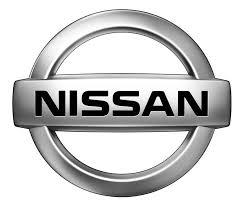Quest V6-3.5L (VQ35DE) (2009)
/Page-233001.png)
Engine Oil: Testing and Inspection
ENGINE OIL
Inspection
OIL LEVEL
-
Before starting the engine make sure the vehicle is parked on a flat and level surface, then check the oil level. If the engine is already running, turn
it off and allow five minutes before checking.
-
Check that the oil level is within the low (L) and high (H) range as indicated on the dipstick.
-
If the engine oil level is out of range, add oil as necessary.
OIL APPEARANCE
-
Check engine oil for white milky or excessive contamination.
-
If engine oil becomes milky, it is highly probable that it is contaminated with engine coolant. Repair or replace damaged parts.
OIL LEAKAGE
Check for oil leakage around the following areas:
-
Upper and lower oil pan
-
Oil pan drain plug
-
Oil pressure switch
-
Oil filter
-
Oil cooler
-
Water pump cover
-
Timing chain tensioner cover
-
Intake valve timing (IVT) control cover and intake valve timing (IVT) control solenoid valve
-
Front cover
-
Mating surface between cylinder block and cylinder head
-
Mating surface between cylinder head and rocker cover
-
Mating surface between the front timing chain case and rear timing chain case
-
Crankshaft oil seal (front and rear)
OIL PRESSURE CHECK
WARNING:
-
Be careful not to burn yourself, as engine oil may be hot.
-
Put the selector lever in the Park "P" position.
1. Check the oil level.
2. Disconnect the oil pressure switch harness connector.
3. Remove the oil pressure switch.
CAUTION:
Do not drop or shock oil pressure switch.
